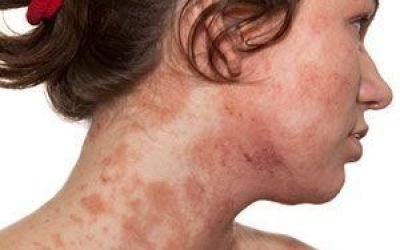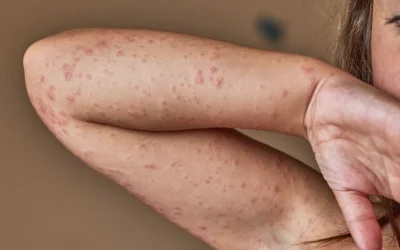Get Quality Skin Infection Treatment from Top Specialist Doctor in Punjab

book your appointment

Introduction to Skin Infections
Skin infections are prevalent conditions that affect people of all ages and backgrounds. Consulting a Skin Infection Specialist in Punjab is crucial when dealing with these conditions. They occur when harmful microorganisms such as bacteria, viruses, fungi, or parasites invade the skin, causing a range of symptoms. These infections can manifest in various forms, from minor irritations to severe, life-threatening conditions. The skin, being the largest organ of the body, acts as a primary defense barrier against these pathogens. However, breaks in the skin, compromised immune systems, or other underlying health conditions can make individuals more susceptible to infections
Understanding Skin Infections
Skin infections can result from bacteria, viruses, fungi, or parasites, each requiring specific treatment approaches. Here are some common types of skin infections:
- Bacterial Infections: Conditions like cellulitis, impetigo, and folliculitis (Mayo Clinic, 2023).
- Viral Infections: Such as herpes simplex, shingles, and warts (CDC, 2023).
- Fungal Infections: Including athlete’s foot, ringworm, and yeast infections (NIH, 2023).
- Parasitic Infections: Conditions like scabies and lice infestations (WHO, 2023).

Importance of Early Diagnosis and Treatment
Early diagnosis and prompt treatment of skin infections are critical to prevent the spread of the infection and avoid complications. Skin Infection Specialist in Punjab can provide the necessary expertise for effective management. Untreated skin infections can lead to more severe health issues, including systemic infections that can affect other parts of the body. Early intervention typically involves a combination of topical and oral medications, lifestyle adjustments, and sometimes more advanced medical procedures, depending on the severity and type of infection.
Types of Skin Infections Treatment
Bacterial Skin Infections
Bacterial infections are often caused by common bacteria like Staphylococcus aureus and Streptococcus pyogenes. They can present in several forms:
- Cellulitis: A potentially serious infection that affects deeper layers of the skin, leading to redness, swelling, warmth, and pain. It can spread rapidly and might require antibiotics.
- Impetigo: A highly contagious infection, particularly common in young children. It causes red sores that quickly rupture, ooze, and form a yellow-brown crust.
- Folliculitis: Inflammation of the hair follicles, often appearing as small, red bumps or white-headed pimples around hair follicles.
Viral Skin Infections
Viral infections can cause various skin conditions, some of which are chronic:
- Herpes Simplex Virus (HSV): Causes cold sores around the mouth or genital herpes, both of which can recur periodically.
- Warts: Caused by different strains of the human papillomavirus (HPV), warts can appear on hands, feet, and other parts of the body.
- Molluscum Contagiosum: A viral infection causing small, firm bumps with a central indentation, often seen in children.

Fungal Skin Infections
Fungal infections thrive in warm, moist environments and can affect various parts of the body:
- Ringworm (Tinea): Despite its name, ringworm is not caused by a worm but by a fungus. It creates ring-shaped, red, scaly patches on the skin.
- Athlete’s Foot (Tinea Pedis): Affects the feet, particularly between the toes, causing itching, burning, and cracked skin.
- Candidiasis: Caused by the Candida fungus, it can lead to red, itchy patches, particularly in warm, moist areas like the armpits, groin, and under the breasts.
Parasitic Skin Infections
Parasitic infections result from parasites like mites and lice:
- Scabies: Caused by tiny mites that burrow into the skin, leading to intense itching and a pimple-like rash.
- Lice Infestations: Head lice, body lice, and pubic lice cause intense itching and discomfort and can spread through close contact or shared items.
Symptoms and Diagnosis of Skin Infections
Common Symptoms
Skin infections can present a variety of symptoms, depending on the type and severity:
- Redness and Inflammation: Common in bacterial and fungal infections.
- Swelling and Pain: Often accompanies more severe infections like cellulitis.
- Itching and Irritation: Typical in fungal and parasitic infections.
- Pus or Discharge: Indicative of bacterial infections or abscesses.
- Rashes and Blisters: Viral infections often cause these symptoms.
Diagnostic Methods
Accurate diagnosis is crucial for effective treatment. Dermatologists and skin specialists use several diagnostic techniques:
- Physical Examination: Initial assessment by visually inspecting the affected area.
- Skin Cultures: Samples from the infected area are cultured to identify the causative organism.
- Blood Tests: To check for systemic infections or immune system issues.
- Biopsies: In some cases, a small sample of the skin is taken and examined under a microscope.
About Dr. Parwaaz Matharoo
Dr. Parwaaz Matharoo is a highly esteemed dermatologist with years of experience in diagnosing and treating a wide range of skin infections.His unwavering commitment to patient care and extensive expertise in dermatology have established him as a respected figure in Punjab.
Why Choose Dr. Parwaaz Matharoo?
Expertise and Experience
With a deep understanding of dermatological conditions, Dr. Matharoo uses the latest medical advancements to diagnose and treat skin infections. His experience ensures that patients receive accurate diagnoses and effective treatments tailored to their specific needs.

Personalized Care
Dr. Matharoo believes in a patient-centric approach, ensuring that every patient feels heard and cared for. He takes the time to understand your medical history and symptoms to provide a personalized treatment plan.
Advanced Diagnostic Tools
Specialists use state-of-the-art diagnostic equipment and techniques to accurately identify the type and severity of the infection. This ensures that patients receive precise and effective treatment tailored to their specific needs
Comprehensive Care
From initial diagnosis to follow-up care, skin infection specialists provide comprehensive services. They educate patients on preventive measures, monitor recovery, and adjust treatments as necessary to ensure optimal outcomes.
Treatment Approaches
At The House of Skin, we offer comprehensive treatment options for skin infections, including:
Medical Treatments
- Antibiotics: For bacterial infections (WebMD, 2023)
- Antiviral medications: For viral infections (Johns Hopkins Medicine, 2023)
- Antifungal treatments: For fungal infections (Cleveland Clinic, 2023)
- Antiparasitic medications: For parasitic infections (Healthline, 2023)
Advanced Therapies
Dr. Matharoo also utilizes advanced therapies to treat severe or resistant skin infections, ensuring faster recovery and better outcomes.
Preventive Measures

Preventing skin infections is as important as treating them. Dr. Matharoo provides expert advice on maintaining skin hygiene and using preventive measures to avoid future infections. Here are some tips:
Keep Your Skin Clean and Dry
Practicing proper hygiene is crucial for preventing skin infections.. Regularly washing your skin with mild soap and water removes dirt, sweat, and microorganisms that can cause infections. It is equally important to thoroughly dry your skin after washing, especially in areas prone to moisture, such as underarms, groin, and between the toes. Moist environments can promote the growth of fungi and bacteria, increasing the risk of infections like athlete’s foot and yeast infections.
Avoid Sharing Personal Items Like Towels and Razors
Sharing personal items can transmit infectious agents from one person to another. Towels, razors, and other personal hygiene items can harbor bacteria, viruses, fungi, and parasites that cause skin infections. By using your own personal items, you minimize the risk of contracting or spreading infections like impetigo, folliculitis, and scabies. Always wash and dry these items properly after use and replace them regularly.
Wear Protective Clothing in Environments Prone to Infection
Certain environments, such as gyms, swimming pools, and communal showers, have a higher risk of exposure to infectious agents. Wearing protective clothing, such as flip-flops in communal showers and breathable, moisture-wicking fabrics during workouts, can help prevent skin contact with surfaces that may harbor infectious microorganisms. Protective gear reduces the chances of developing infections like athlete’s foot, ringworm, and other skin conditions caused by fungi and bacteria.
Follow a Healthy Diet to Boost Your Immune System
An effective immune system is essential for combating infections.. A balanced diet rich in vitamins, minerals, and antioxidants supports immune function and overall skin health. Nutrients such as vitamin C, vitamin E, zinc, and omega-3 fatty acids play a crucial role in maintaining skin integrity and enhancing the body’s ability to combat infections. Consuming a variety of fruits, vegetables, whole grains, lean proteins, and healthy fats ensures your body receives the necessary nutrients to stay resilient against skin infections.
Contact Us
If you are experiencing symptoms of a skin infection, don’t hesitate to seek expert care. Contact Dr. Parwaaz Matharoo at The House of Skin in Punjab today to schedule a consultation.
- Phone: [+91 82735 00120]
- Email: [pmatharoo14@gmail.com]
- Address: [Kiran Hospital, Gill Rd, Opp. Janta Nagar Chowk, Dasmesh Nagar, Ludhiana, Punjab 141003]
Schedule an appointment with Dr. Matharoo immediately. Early diagnosis and treatment can prevent complications.
Some skin infections, like viral and fungal infections, can be contagious. It’s important to follow preventive measures to avoid spreading the infection.
Recovery time varies depending on the type and severity of the infection. Dr. Matharoo will provide a tailored treatment plan to ensure a quick and effective recovery.
Get Consultation With Our Experts
Schedule a consultation today and embark on a journey towards informed decision-making and success. Your challenges, our expertise – let’s collaborate for a brighter future.

